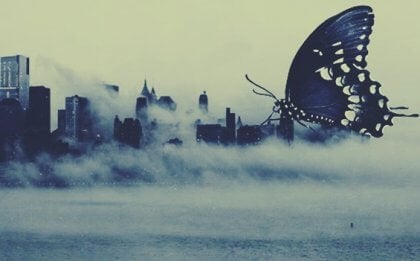Cognitive bias is a mistake that our brain makes in processing information, this error is because unconsciously we take shortcuts based on knowledge or experience gained, the problem is that these shortcuts do not always lead us to correct conclusions, that is, they do not always represent a real saving of energy and time. In this article we will talk about one of the most common: the impact bias.
Impact bias is a mistake in the processing of information that leads to the assumption that negative situations will be much worse than they really are or that positive ones will be better than they end up being, that is, thinking about future situations, imagining that they may require more resources than we have, when in fact they are not.
- An example of this is the visit to the dentist.
- It is common for many patients.
- Before going to an appointment.
- To imagine that they will suffer a lot.
- Fortunately the technical means have advanced and this means that much of the suffering suffered by patients previously experienced in their chairs has disappeared or decreased considerably.
However, the idea left in the collective unconscious (the figure of the dentist as an executioner) can make the patient suffer for a long time, however, when this actually happens, nothing negative is likely to happen than has been imagined. In this case, there was an impact bias.
“The future is something everyone achieves at a rate of sixty minutes per hour, no matter what they do and who they are. “Clive Staples Lewis.
These forward-looking statements we make are often unreliable, precisely because of the impact bias. People tend to overestimate the emotional response we will have to future events, both in a positive and negative sense.
All this escapes consciousness, because in the projections of the future we make, the emotional component influences more than the product of logic. Looking to the future, our fears, insecurities or fantasies outweigh our ability to value variables and make reliable predictions.
In fact, we not only imagine that negative situations will be worse or better positive than they actually end, but we also assume that their duration will be longer. For example, many believe that if we win the lottery, we’ll have a lifetime. In practice, those who have this fortune do not see it as exceptional, shortly after being rewarded with the stroke of luck.
At the center of anxiety there is always a negative expectation about the future, much of the anxiety is triggered because we expect something to go wrong in the short, medium or long term, that is precisely the root of a concern: a negative projection. of what will happen. This perspective plantes a seed of problems in us.
Thinking about the future easily leads us to the so-called “mental rumia”. A constant return of the same idea, imagining possible results or visualizing different paths, without this bringing to action. It’s a mechanical exercise in reflection, what if??
It is something very different from the prognosis, in the forecast we anticipate the possibility of certain contingencies occurring and we are acting on it, we protect ourselves or we take measures to neutralize threats, we also try to be prepared for good opportunities. act on a real probability. The key is this: we act rather than think.
It was the great painter Francisco de Goya y Lucientes who made an eye-catching painting entitled The Dream of Reason Produced by Monsters, pictured a shrinking person surrounded by ghostly and threatening beings, the image says it all and corresponds to something that psychology detected long after the painting was made.
This is essentially what happens in impact bias, especially in the face of negative forecasts, if a person falls into the trap of obsessively thinking about negative events or sufferings that may occur in the future, he will end up carrying additional pain that is strange. to his own situation.
We talk about self-generated suffering, mostly automatically, the future frightens us, in a way, because it is unknown, also because death is on the horizon.
If we focus on the future and the painful possibilities that inhabit it, we are more likely to end up living with an unbearable amount of ghosts.
The impact bias makes us flood all our expectations with a tragic fragrance: a habit that tires us a lot, so it is always better to look to the future, taking into account not what is going to happen, but our ability to cope. events.

